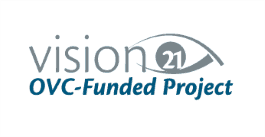The Evidence Hour: Social Reactions to Sexual Assault

The Center for Victim Research’s webinar series, The Evidence Hour, showcases a recent systematic review* or meta-analysis about victimization, trauma, or victim services. Each webinar features an author of the research and a practitioner discussant who will review the findings and reflect on what they mean for victim service providers and researchers.
Dr. Sarah Ullman reviewed research on correlates and impacts of social reactions made to victims disclosing sexual assault and partner violence. Kris Bein shares recommendations from survivors and informal supports about what survivors need. Dr. Ullman also shared findings from an evaluation of recent intervention to improve social reactions to survivor disclosures. The presenters also discussed how victim advocacy organizations can help friends and family members of survivors and some practical dos and don’ts for demonstrating support through body language and words.
This webinar is based on findings from the article:”Correlates of Social Reactions to Victims’ Disclosures of Sexual Assault and Intimate Partner Violence: A Systematic Review” by S. E. Ullman, (2021). Trauma, Violence, & Abuse, 15248380211016013. (Contact the Research Librarian for access.)
Related Research:
- “‘We need more resources’: Stories of QTPOC survival in the South” by B.M. Coston. (2018). Journal of Gay & Lesbian Social Services, 31(1): 35-52. This study involved focus groups where queer and trans people of color discussed their experiences of intimate partner violence and reactions from service providers and their networks. Most participants discussed the importance of friends and family for getting help and modeling healthy relationships, but also how many people are not prepared in the moment to offer support and resources. The author summarized: “it is critically important that service providers and community organizations also provide services to survivor support networks.”
- “Supporting sexual assault survivors with disabilities: Tracing disclosure and referral pathways to postassault health care services” by R. Campbell et al. (2021). American Journal of Orthopsychiatry, 91(6), 751–762. (Abstract only; contact Librarian for full-text.) This study used notes from 75 Sexual Assault Nurse Examiners to understand how survivors with disabilities sought help. Data analysis showed that survivors with disabilities were much less likely than survivors without disabilities to tell their family and friends about experiencing sexual violence. Also, when survivors with disabilities disclosed to informal supports, informal supports were less likely to recommend victim services. The authors discuss how to raise awareness of services in the community so more survivors have access to resources.
- “The association between social support and posttraumatic stress symptoms among survivors of betrayal trauma: a meta-analysis” by V. Tirone e tal. (2021). European journal of psychotraumatology, 12(1), 1883925. One goal of this study was to expand on findings of Dworkin et al.’s 2019 systematic review on social reactions to disclosure and of
- “A mixed-method process evaluation of an intervention to improve social reactions to disclosures of sexual assault and partner abuse” by E.A. Waterman et al. (2020). Journal of Interpersonal Violence. Process evaluations measure “progress or implementation of a program or service to determine how closely the activities are implemented as intended, and to identify process barriers, facilitators, and opportunities for correction.” (CVR Glossary). This article discusses a process evaluation of Survivors and Self: An Intervention for Social Supports of Survivors of Partner Abuse and Sexual Aggression (SSS; Edwards et al., 2020). SSS allows participants to practice positive reactions to disclosure and to consider how to care for themselves while caring for victims. Three hundred and three students completed the program. Many survey and exit interview respondents found helpful interactive activities like role play and small group discussions and that they increased their skills in body language, resource referral, empathetic listening, and following up later. Some participants notes that sessions could be repetitive and rely too much on lecture and forced discussion groups with strangers.
Related Resources from our Reserch2Practice Network:
- National Sexual Violence Resource Center: Healing from sexual violence – How friends and family can help
- NW Network of Bi, Trans, Lesbian and Gay Survivors of Abuse: It Takes a Village, People! Advocacy, Friends and Family & LGBT Survivors of Abuse
- Resource Sharing Project: Partners in Healing: Supporting Friends & Family
*What are Systematic Reviews?
- A systematic review is the process of bringing together all available studies about a well-defined question, analyzing the quality of their study methods, and summarizing their findings.
- Systematic reviews often use a statistical practice called meta-analysis. This means combining data from multiple studies, to find patterns and calculate the average effect of the intervention.
- Because systematic reviews pool results from many experiments and rate the methods of each study, these reviews increase our confidence in the quality and consistency of the evidence and what it means for the field.
Basically, systematic reviews take a large amount of information about a complex issue from multiple sources and make that information more manageable and usable. These reviews can also help make sense of conflicting findings from different studies.
Learn more from:
- Quick Reference: Systematic Reviews
- Quick Reference: Tips on Reading Research Articles
« PREVIOUS NEXT »

Leave a Reply